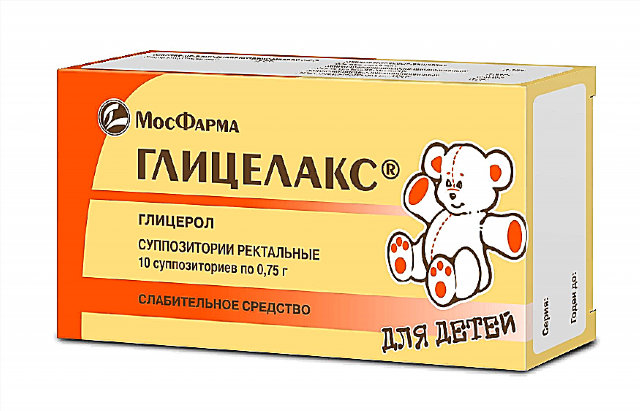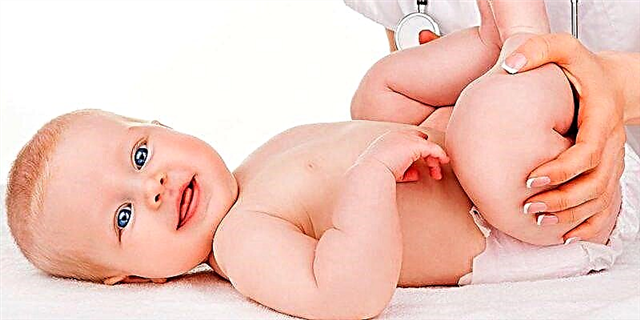
Derinat is one of the drugs in demand for rhinitis, sinusitis, adenoiditis and other diseases of the upper respiratory tract. It in the form of drops is often used by adults and to treat viral lesions of the nasopharynx, and to prevent colds or flu. But is it possible to treat children with such a drug, does it harm the child's body and what can be replaced if necessary?


Release form
Derinat in the form of nasal drops is a dropper bottle containing 10 ml of a colorless transparent solution. There should be no visible particulate matter in it. There is no smell and taste in such a preparation.

Composition
The active ingredient in Derinat drops is sodium deoxyribonucleinate. Since the solution has a concentration of 0.25%, each milliliter contains 0.0025 g of deoxyribonucleinate (2.5 mg). Sodium chloride is added to it, and the remainder of the drug is water for injection. There are no other substances in such a liquid.

Operating principle
The active ingredient of Derinat has an immunomodulatory effect, since it has the ability to activate both humoral and cellular immunity. This makes the immune responses more pronounced in response to infection with bacteria, fungi and viruses. And although the medication does not directly affect the pathogen, it helps the immune system to cope with the pathological agent faster and easier.
Besides, Derinat is referred to as reparants, since this agent stimulates the healing and tissue regeneration processes. The solution is especially active in treating trophic ulcers and deep burns. Its use accelerates the epithelialization of such lesions both on the skin and on the mucous membrane. This determines the popularity of the drug in surgical practice and ophthalmology.

Indications
It is advised to drip Derinat into the nose for ARVI, as well as for their prevention. In this case, the medication can be used as monotherapy. With such chronic or acute diseases of the upper respiratory tract as sinusitis, pharyngitis, otitis media, laryngitis, inflammation of the adenoids or rhinitis, Derinat can also be used as an adjunct to the main treatment (antibacterial, antiviral).
In addition, the solution is in demand for inflammation of the oral mucosa and for ophthalmic pathologies in which there is inflammation or dystrophy. Local use of the drug is possible with infected wounds, trophic ulcers, frostbite, burns and other injuries.
From what age is it permissible to use?
Derinat in the form of nasal drops does not have any age restrictions in the application. Such a remedy is safe for babies from the first days of their life.

Contraindications
The only reason to refuse to use Derinat in drops is the intolerance of the drug components. There are no other contraindications for such a drug.
Side effects
The medication is generally well tolerated and is considered safe for children. It does not cause vasoconstriction and does not provoke negative reactions from the digestive or nervous system. Addiction to this drug does not develop. If the child has a burn or an open wound, the drug will have an analgesic effect.

Instructions for use and dosage
- Before dripping Derinat into a child's nose, it is important to clean the nasal passages from crusts or pathological secretions. For this, it is convenient to use a nasal aspirator or cotton wool cords.
- When stored in the refrigerator, you first need to hold the bottle with the medicine in your hands for a while, and then inject the drug into the baby's nasal cavity. Having laid the child down, the medication is gently dripped into each nostril, after which the child is told to lie down for a while.
- If a child gets sick with the flu or a cold, in the first two days from the onset of the illness, he needs to drip a nose every 1.5-2 hours, 2 drops of the drug. From the third day, they switch to 3-4 times use. The medicine is administered in 2 drops, and the treatment is continued until complete recovery.
- If Derinat is used in a complex of measures against sinusitis, frontal sinusitis, sinusitis or rhinitis, the medicine is dripped 4 to 6 times a day, and a single dose is 3-5 drops. The duration of use for such pathologies is from 7 to 15 days.
- For preventive purposes, Derinat is recommended to drip 2 drops into each nasal passage three or four times a day. Such use of the drug is possible throughout the season of colds and SARS, but most often the solution is prescribed in a course of one or two weeks.
- If the child develops inflammation of the oral mucosa, the drops can be used for rinsing. One bottle of medicine is enough for 1-2 rinses. The procedure should be carried out up to four to six times a day for 5-10 days.
- Ophthalmologists prescribe liquid Derinat for dystrophic or inflammatory eye diseases in 1-2 drops. The medication is dripped in this dosage into each eye two or three times a day. The drug is prescribed for a course of two weeks to 1.5 months.
- If drops are used for local treatment of skin lesions, gauze is moistened with the solution and an application bandage is applied. Then 3-4 times during the day, a new portion of the medication is applied to the bandage.
- With prolonged rhinitis, tonsillitis, adenoids, hay fever, bronchial asthma and other pathologies, it is possible to use inhalations with Derinat. For the procedure, the drug is diluted 1 to 1 with saline solution - 1-2 ml of saline are taken for 1-2 ml of the drug. Using a nebulizer, inhalation is done twice a day for 5-10 days.

A practical video lesson on how to properly instill a nose for children.
Overdose
There were no cases of negative effects of high doses of the solution.
Interaction with other drugs
The drug is often prescribed not independently, but as an additional agent in the treatment of viral or bacterial infections. Derinat can be combined with antibacterial drugs and anti-inflammatory drugs with antipyretic effects. The medication is not compatible only with hydrogen peroxide and fat-containing ointments - this is important to consider when treating with Derinat locally.

Terms of sale
Since Derinat is a non-prescription drug, it is available in most pharmacies for anyone. The average price of a bottle of drops is 240-250 rubles.
Storage features
Drops are recommended to be kept at home in a place inaccessible to a small child, where direct sunlight does not fall. The sealed vial should be stored at + 4 + 20 degrees Celsius for the entire shelf life of 5 years. Once the bottle has been opened, the contents can only be used for 2 weeks. Throw away the bottle of unused medicine 14 days after the first application of the drops.

Reviews
Many mothers respond positively to the use of Derinat in children. They say that such a medication really helps not to get sick with colds and flu, and if the child does become infected, then ARVI is easier and complications do not arise. The advantages of drops are called the ability to use them from birth, as well as convenient packaging.

The disadvantages of the drug are considered a short shelf life and the need to keep drops in the refrigerator. In addition, many mothers complain that one bottle is not enough for a full course of treatment. There are also reviews that mention the lack of a therapeutic effect in a particular child.


Doctors treat medication differently. Some doctors prescribe it to children and note that Derinat is able to enhance the effectiveness of other drugs, for example, antibiotics. Others are skeptical of the drug and compare it to a placebo.

Analogs
With ARVI with a runny nose in a child, instead of Derinat, you can use:
- Aqua-Maris... The basis of such nasal drops is sea water, thanks to which the agent perfectly moisturizes the nasal mucosa and helps to reduce the inflammatory process. This medication is approved from birth, even with prematurity. It is also produced in the form of a spray, but it is advised to use this form in children only over the age of 1 year.
- IRS-19... This nasal spray has an immunostimulating effect due to the presence of several types of bacteria in the lysates. It is prescribed for prevention, as well as for the treatment of rhinitis, pharyngitis, tonsillitis and other diseases from 3 months of age.
- Viferon. With a runny nose, such a medication in the form of a gel (can be used from birth) or ointment (allowed for children over a year old) is in demand. The basis of the drug is interferon, so this agent helps the child's immune system in the fight against viral diseases.
- Grippferon. This drug also contains interferon and is available in a spray and nasal drops. If necessary, this medication can be used to treat babies from birth.
- Vibrocil. In such a preparation, the active ingredients are phenylephrine and dimetinidene. The remedy is in demand for rhinitis, including allergic rhinitis. In drops, it is used in children over a year old, and in a spray - from 6 years of age.
- Nazol Baby... This medication, containing phenylephrine, has a vasoconstrictor effect. Pediatricians prescribe it for rhinitis for children of any age, if there is an indication for such treatment.

It is important to remember that any of these drugs should be selected as a replacement for Derinat together with a pediatrician. When looking for a drug, you should not take any of these medications cheaper and drip it to the child yourself, because a small patient may have contraindications to the chosen remedy. In addition, with self-medication, the mother may be mistaken with the cause of the disease and the drops will not have any beneficial effect, and time will be lost and the pathology will turn into a chronic form.




